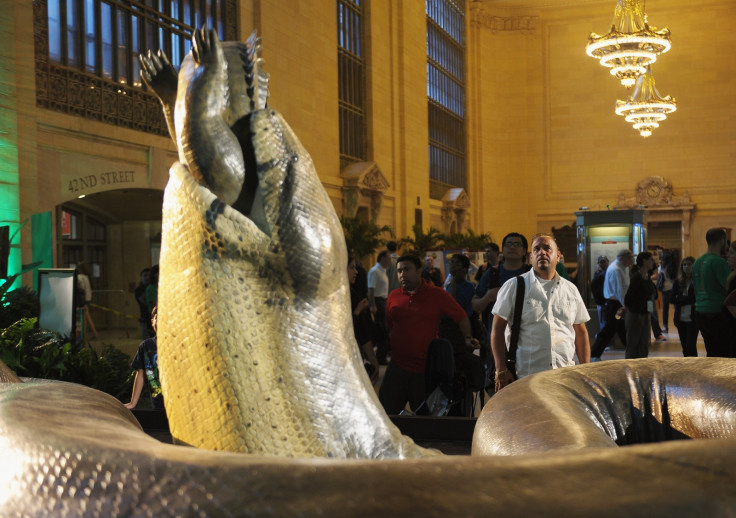Titanoboa: The monster snake that measured 50 feet and ate crocodiles for dinner
Titanoboa cerrejonensis is the largest snake ever known to have existed.

Sixty million years ago, a snake measuring 50 foot (15 meters) and weighing one-and-a-half-tons roamed some of the Earth's earliest tropical rainforests.
Titanoboa cerrejonensis was the largest snake ever known to have existed and was an ancestor of today's boa constrictors – a group which includes pythons and anacondas. Being a constrictor, Titanoboa didn't kill using fangs or venom, but crushed its prey to death using its immense weight and powerful muscles.
Now, a realistic replica of the snake will tour 15 US cities as part of an exhibition organized by the Smithsonian Institution.
The replica will feature vertebrae made using casts taken from the original fossils, which were discovered in a Colombian coal mine in 2002.
In subsequent years, further investigations of the mine have revealed numerous fossils which have shone a light onto what some scientists believe to be the first rainforest on Earth.
The finds so far have included giant turtles and crocodiles, as well as the first-known bean plants and some of the earliest bananas, avocado and chocolate plants. But none of the remains matched the spectacular discovery of fossilized vertebrae from the previously unknown snake species.
Titanoboa was one of the largest land animals of its time, in a period when megafauna were commonplace. Scientists think it feasted on crocodiles after which it would have not needed to eat for a whole year, although it may also have eaten large fish.
Like modern snakes, Titanoboa would have been able to dislocate its jaw to help swallow bigger prey than it's own head.





















